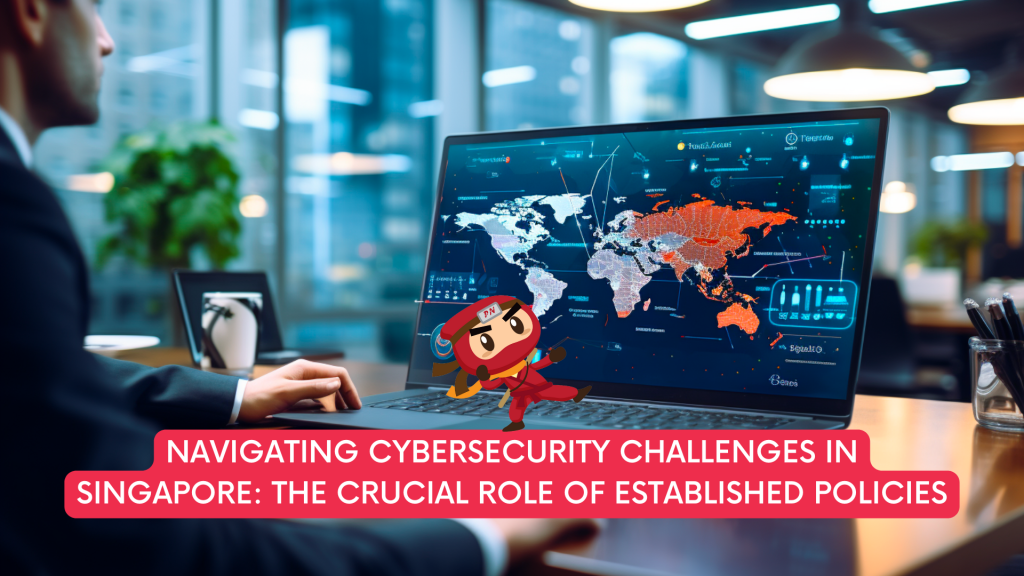
In the rapidly evolving digital landscape of Singapore, where technology drives innovation and growth, the importance of having well-defined policies in place cannot be overstated. These policies not only serve as guiding principles for daily operations but also play a pivotal role in preventing cybersecurity issues within organizations.
This article explores how the establishment of robust policies creates a framework for procedures that can be executed autonomously, mitigating cyber threats and fostering a secure digital environment.
In Singapore, a city-state with a strong emphasis on regulatory compliance, having comprehensive policies in place is fundamental. These policies ensure that organizations adhere to local and international regulations governing data protection and cybersecurity. By defining guidelines for data handling, storage, and transmission, policies serve as a shield against legal consequences, reinforcing the organization’s commitment to ethical and lawful practices.
Well-crafted policies empower employees with clear procedures to follow even in the absence of direct supervision. This autonomy is especially crucial in the realm of cybersecurity, where swift and decisive actions can make the difference between thwarting an attack and succumbing to a breach. Policies provide a roadmap for employees to navigate potential threats, reducing the likelihood of human error and ensuring a consistent and effective response to cyber incidents.
Cybersecurity policies are the cornerstone of promoting good cyber hygiene practices within an organization. From password management to secure file sharing, policies outline best practices that act as preventive measures against common cyber threats. Educating employees through established policies creates a culture of security awareness, reducing the risk of falling victim to phishing attacks, malware, or other cyber exploits.
Singapore, being a global hub for finance and technology, is a prime target for cybercriminals seeking to exploit sensitive information. Policies governing the handling of confidential data, encryption standards, and access controls are instrumental in safeguarding proprietary information. By defining who has access to what data and under what circumstances, policies create a robust defense against unauthorized access and data breaches.
The unpredictable nature of cyber threats necessitates a well-defined incident response plan. Policies play a crucial role in outlining the steps to be taken in the event of a cybersecurity incident, ensuring a swift and coordinated response. From reporting procedures to communication protocols, policies provide a structured framework that minimizes confusion and accelerates the containment and mitigation of security breaches.
Cyber threats are dynamic, and their sophistication continues to grow. Policies act as living documents that can be updated and adapted to address emerging threats. Regular reviews and revisions ensure that organizations in Singapore remain resilient in the face of evolving cyber challenges. This adaptability is key to staying ahead of cyber adversaries and maintaining a proactive cybersecurity posture.
Policies contribute to the development of a security-conscious organizational culture. When employees understand the importance of policies in protecting not only the organization but also their personal data, they become active participants in cybersecurity efforts. This cultural shift fosters a collective responsibility for security, transforming employees into the first line of defense against cyber threats.
In the digital landscape of Singapore, where innovation and technology convergence fuel economic growth, the establishment of comprehensive policies is paramount. These policies create a structured framework for procedures that can be executed autonomously, preventing cybersecurity issues and fortifying the digital defenses of organizations.
By embracing policies that encompass compliance, autonomy, and incident response, organizations in Singapore can navigate the complex cybersecurity landscape with confidence. These policies not only safeguard sensitive information but also contribute to building a resilient and security-conscious organizational culture. As Singapore continues to thrive as a digital hub, the importance of established policies becomes not just a best practice but an indispensable pillar of cybersecurity resilience in the modern digital era.
Your appointed DPO can work with you on your PDPA compliance, ensuring that there will be policies in place to make sure that the handling of personal data is PDPA compliant.
A Data Protection Officer (DPO) oversees data protection responsibilities and ensures that organisations comply with the Personal Data Protection Act (PDPA). Furthermore, every Organisation’s DPO should be able to curb any instances of PDPA noncompliance as it is the officer responsible for maintaining the positive posture of an organisation’s cybersecurity.
DPOs complement organisations’ efforts to ensure that the organisation’s methods of collecting personal data comply with the PDPA. It also ensures that policies are set in place to make sure that there will be no instances of data breaches in the future.
Don’t wait any longer to ensure your organisation is PDPA compliant. Take our free 3-minute PDPA Compliance Self-audit checklist now, the same “secret weapon” used by our clients to keep them on track. Upon completion, we will send you the results so you can take the necessary action to protect your customers’ data. Complete the free assessment checklist today and take the first step towards protecting your customers’ personal data.
Role of Enhanced Access Controls in Safeguarding Personal Data in Telecommunications that every Organisation in…
Effective Incident Response Procedures in Strengthening Data Security that every Organisation in Singapore should know…
Crucial Role of Regular Vulnerability Scanning that every Organisation in Singapore should know. Strengthening Your…
Enhancing Data Security with Multi-Factor Authentication that every Organisation in Singapore should know. Enhancing Data…
Strong Password Policy as a first line of defense against data breaches for Organisations in…
Importance of Efficient Access Controls that every Organisation in Singapore should take note of. Enhancing…
This website uses cookies.